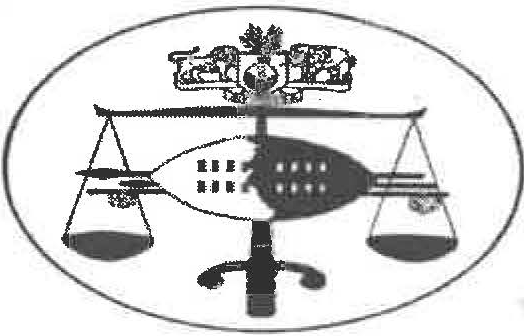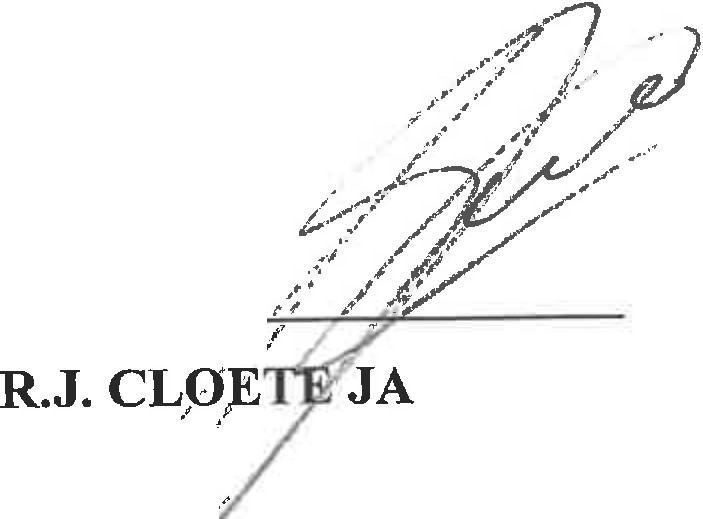- Case summary
- Criminal Procedure - bail application- provisions of section 96(4)(b) of th Criminal Procedure and Evidence Act considered - that it would not be i the interest oJjustice to release the accused on bail - accused has given cour a quo false evidence of his place of birth -the appeal accordingly dismissed

IN THE SUPREME COURT OF ESWATINI JUDGMENT
Civil Appeal Case No. 09/2019
In the matter between:
ALEX POUND LANGA Appellant
AND
THE KING Respondent
Neutral citation: Alex Pound Langa versus The King (09/2019 [SZSCJ 06 [2020] O st
June, 2020)
Coram: R.J. CLOETE JA
S.B. MAPHALALA JA
J.P. ANNANDALE JA
Heard: 17th February, 2020 Delivered: 1st June, 2020
Summary: Criminal Procedure -bail application- provisions of section 96(4)(b) of the Criminal Procedure and Evidence Act considered - that it would not be in the interest oJjustice to release the accused on bail - accused has given court a quo false evidence of his place of birth -the appeal accordingly dismissed.
JUDGMENT
S.B. MAPHALALA JA
The Appeal
The Appellant, who was the Applicant in a bail Application under High Court Case No. 245/2019 appeared before High Judge Fakudze who delivered his judgment on the 29 July, 2019 against the Appellant, and he being dissatisfied filed an appeal against the said judgment on the followiµg grounds:
The court a quo erred in fact and in law by, having found and held that appellant has established that he came to the country in the year 2005 and has been resident hereat since that time, he had failed to establish that he
is a national of Eswatini and that he has roots in the country in the form of
substantial investments when b' oth these considerations are not envisaged by section 96(4) of the Criminal Procedure and Evidence Act (67/38) as amended.
The court a quo erred both in fact and / or misdirected its self by finding and holding that the fact that Appellant has a Liswati fiancee with whom he has three (3) children is not good enough.
The court a quo erred both in fact and in law by ignoring the affidavit of Timothy Mahlaba (biological father to the Appellant's fiancee) who bad indicated that he is allowing Appellant to stay at his homestead at
Mbangweni to ensure that he remains within the borders of the country and attends trial.
The court a quo erred in fact and in law by finding and holding that the Appellant was facing serious charges of trafficking and the falsification of legal documents like identity cards and passports when in actual fact all matters appearing before that court are serious ones and the said court does grant bail in some of them.
The court a quo misdirected itself in law by failing to appreciate that it was seized with a bail application as opposed to a trial and it ought not to have dealt with the matter as if it was at trial stage and the issues it relied upon for its judgment are issues for the trial court which require being tested in cross examination.
The court a quo erred both in fact and in law by failing to take into account
i
that in terms of the People Trafficking and People (Prohibition) Act of
2009, such an offence is a universal one irrespective of where it was allegedly committed, a court i any jurisdiction may try a person charged for the contravention of same.
At the hearing of the appeal before this Court on the 12th February 2020 both parties filed separate applications for condonation. I shall deal at length with this aspect of the matter later before examining the merits of the appeal.
The background
The Appellant, who was the Applicant in the court a quo, was arrested by the Manzini police and charged with four (4) counts, which are (a) contravening Section 14(2) (c) of the Immigration Act of 1982 (b) contravening Section 23 of the
Eswatini Citizenship Act, 1992 and (c) two counts for contravening Section 19 of the Human Trafficking or People Smuggling (prohibition) Act of 2009.
The Appellant stated in the court a qJo that he arrived in the country in 2005, using an emergency passport. He stayed in the country since then and has a strong intention to stay here as the domicile of his choice. He has stayed in the country for close to 13 years.
Appellant further avers that he has three (3) children who were born in Eswatini and their mother is Liswati. The number of years he has spent in the country qualifies him for permanent residence and he was arrested while in the process of acquiring it.
The Applications for Condonation
Before this Court there are two separate applications for condonation filed by each of the parties in this appeal. First on tµe 13th February, the Appellant filed his application for condonation condoning the Applicant for failure to comply with the Rules of Court regarding compliance with the time. limits for filling Heads of Arguments and a Bundle of Authorities. Then on the 17th February, the Respondent filed a similar application for condonation for leave to filing Heads of Argument and Bundle of Authorities outside the time limits provided for by the Rules of this Court.
The application filed on behalf of the Appellant was without any further ado granted by this Court as the Appellant in the :ij'ounding Affidavit outlined the necessary averments including the prospects of success on the application for condonation as
required by law.
On the other hand the Respondent filed a pitiful application for condonation. It submitted a shallow affidavit by Counsel for the Respondent Mr Cedric Ngwenya, who never even mentioned the prospects of success in such an application. No proper effort was made by the Crown before the Supreme Court of this country. The application by the Crown was dismissed by this Court without any further ado. However, Counsel for the Respondent was allowed to advance his arguments as canvassed in the Answering Affidavit.
The arguments
For the Appellant
The gravamen of the grounds of appeal is that the court a quo erred both in fact and law, having found and held that the Appellant has established that he came to the country in the year 2005 and_has been resident hereat since then.
[1O] Counsel for the Appellant proceeded to cite the provisions of the Criminal Procedure and Evidence Act in his Heads of Arguments canvassing a number of arguments around the operation of sec1'fon 96 of the Act citing what was stated by Dlamini Jin High Court Case No. 315/13(unreported) Marwick Khumalo and the Others, 3 to the following:
"It is trite that the amendment as reflected in section 96 of the Criminal Procedure and Evidence Act No. 67 of 1938 ushered a shift in the burden of proof in matters of bail. The reading of this section points out that the approach to be adopted by our courts in bail matters is that the bail application should not be refo/sed. By this section outlining various circumstances which ought to be established in order to warrant bail refusal,
it thereby 'shifted' the onus which traditionally rested upon the applicant to the Crown. "
In support of the Applicants' arguments a plethora of decided cases by our Courts has been cited including Mohsin Muhammed and Another vs Rex High Court Criminal Case No. 282/2013 (umeported), that of Brian Mduduzi Qwabe vs Rex High Court Case No. 43/04, that ofSenzo Menzi Motsa vs Rex Appeal Case No. 15/2009 and that of Wonder Dlamini and Another vs Rex Appeal Case No. 1/2013.
The Appellant's final submission is that rn the circumstances, the Crown has failed to discharge its onus as set out in Section 96(4) of the Criminal Procedure and Evidence Act (as amended) hence the Appellant should be admitted to bail.
For the Crown
The first argument advanced for the Crown is that this is an appeal against a judgment of the High Court refusing Appellant to be released on bail which should be dismissed on the following grounds namely:
I
That the Appellant failed to establish that he is a national of Eswatini
and that he has roots in the country in the form of any substantial investment which would compel him to stand trial.
The fact that he has a fiancee with whom he has three children and that the fiancee is Swazi is not good enough.
That the seriousness of the offences he is charged with may likely lead to the Appellant not standing trial.
In support of the above contention Crown Counsel cited the High Court case of Mathias Moyo vs Rex Case No. 469/2015 where applicant had made a similar allegation but it transpired that such was not a good ground upon which bail could
be granted. Also, Section 96(4) (b) was ci ted that the refusal to grant bail and the
1
detention of an accused in custody shall be in the interests of justice where there is a likelihood that if the accused is released on bail he may attempt to evade trial and "in this case it was held that there is a likelihood that the accused, if released on bail may attempt to evade trial."
That the court a quo never erred in fact or in law by pointing out that though the Appellant has been resident of the couptry since 2005, he had failed to establish that he is a national of Eswatini and that he has roots in the country in the form of any substantial investment which would: ·c ompel him to stand trial.
The Crown further contends that its opp9sition to the bail application was justified as it was fully supported by cited case law in conjunction with Section 96(4) of the Criminal Procedure and Evidence Act (as amended). Refusal to grant bail and the detention of an accused in custody shall be in the interests of justice where there is a likelihood that if the accused is releasetl on bail he may attempt to evade trial, and in the present case there is a strong likelihood that he would evade trial.
(17] Finally, it is contended for the Crown that the Appellant failed to disclose that there were pending charges against him fo - contravening to the provisions of section 96(17)(a)(ii) of the Criminal Procedure and Evidence Act (as amended). Further that it is contended for the Crown that bail being a discretionary remedy, it is well settled that an Appeal Court cannot interfere with a decis,ion of the lower court in the absence of a misdirection by the court as stated in Supreme Court Case of Musa
Waga Kunene (supra).
The Court's analysis and conclusions
Before this Court presently is an Appeal , against a judgment of he High Court refusing the appellant to be released on bail on the grounds stated at paragraph [1] of this judgment.
The crucial question to be answered by this Court on these facts is whether the Crown has proved a case in terms of section 96(4)(b) of the Criminal Procedure and Evidence Act, as( amended) in that the· refusal to grant bail and order further detention of an accused in custody, shall be in the interest of justice where there is a likelihood that if the accused is relea_sed on bail he may attempt to evade trial.
It is contended for the Appellant that in the present appeal the only issue which falls for determination is whether or not the findings by the High Court are supported by the provisions of the Criminal Procedure and Evidence Act No. 67/1918 as amended as it is that legislation which governs matters pertaining to bail.
It is contended for the Appellant that section 96(1) of the Act places the onus on the Crown to bring forth to the Court grounds which will indicate that the detention of the accused in custody will e in the interests of justice.
That a clear interpretation of this section is that the Crown must establish, through evidence, that it will be in the interest of justice to refuse the accused person bail and that his continued detention in custody will be in the interest of justice, and that it will be unlawful to expect an accused person applying for bail to establish factors adversely mitigating against his release.,
In support of these arguments the attorney for the Appellant has cited the High Court case of Marwick Khumalo and Two Others case No. 315/2013 (unreported) per Dlaniini J cited on paragraph [10] of page 7 of this judgment.
It contended for the Crown on the other hand that the court a quo did not err in fact or in law by pointing out that though Appellant has been a resident of the country since 2005 he has failed to establish that he is a national of Eswatini or that he has roots in the country in the form of any substantial investments which would compel him to stand trial, and because indeed he failed to do so there is actually no evidence of any substantial investment by the Appellant adduced to the court. In this regard the Crown has cited the High Court cas of Mathias Moya vs Rex (supra) where the court dismissed an application for bail on the grounds that the Applicant was a Zimbabwean national and had no roots ip this country in the form of any substantial investment which would compel him to rtand trial.
. ,.
In my assessment of the parties argument to and fro I am inclined to agree with the Crown's contentions in this regard that in terms of section 96 14) it would not be interests of justice to release the Appell t on bail at this stage.
At paragraphs 4.2 and 4.3 of the Respondent's Answering Affidavit at page 18 of the record the officer who arrested the Applicant Assistant Superintendent Bhuka Shiba stated the following:
It was not until early this year that we made a break through to the effect that he wa,s operating his unlawful business of manufacturing
fraudulent documents to assist foreigners to have local documents such
\
as Identity documents, passports, drivers licence etc, at Mozambique Restaurant in Manzini.
On the arrest we discovered that he was in possession of unauthentic documents for himself such as two passports and bar codes for application for ID's, a_pp ications for citizenship. He was already preparing to leave the country for good to Mozambique as he had realised that the police were hot on his heels.
In his replying affidavit at page 53 of the record at paragraph 6 thereat he denies what has been stated by the police officer, that he was operating an unlawful business producing fraudulent documents. He stated further that he was not charged with forgery so therefore that question does not arise in this case. This cannot be true by any account.
In the documents mentioned above in paragraph·[26] of this judgment, shows a copy of his identification documents that he was Liswati born in Eswatini in Manzini on the 13th April, 1986. This cannot be true1by any account.
In a discussion of Section 60(4)(d) of the South African equivalent to Eswatini Section 96(4) of the Criminal Procedur and Evidence Act, the learned authors Du Toit et al "Commentary on the Criminal Procedure and Act" (Juta) at page 9 - 23 state that in considering this question a court may take into account in fact that the accused knowingly supplied false information at the time of his arrest or during the bail proceedings. False information r lating to identity and place of abode would
be most relevant.
It is my considered view that the Applicant has offered false information to the Court a quo which vitiated the whole application for bail. In other words, the Appellant had not approached this Court in good faith and the court a quo cannot be criticized in coming to the conclusion it did.
. -
11
It is alleged by the Crown in the Answ,ering Affidavit of the police officer who investigated the matter at paragraph 4.2 thereof that it was early this year when the police made a breakthrough to the effect that the Appellant was operating his unlawful business of manufacturing fraudulent documents to assist foreigners to have local documents such as identity documents, passports, drivers licence etc at the Mozambican Restaurant in Manzini.
Furthermore, it was contended by the attorney of the Appellant when the matter appeared before this Court that his trial was proceeding before the Manzini Magistrate Court. In this regard the lega authority of Du Toit is apposite.
In the result, for the aforegoing reasons it would not be interest of justice to release the Appellant on bail and the order of the court a quo is accordingly confirmed and the appeal is dismissed.


S.B. MAPHALALA JA

 IAGREE
IAGREE
I ALSO AGREE
---=-=== - - .....,
![]()
•.
12
For the appellant:
For the Respondent:
Mr L. Dlamini
(Linda Dlamini & Associates)
Mr C. Ngwenya
(The Director of Public Prosecution)